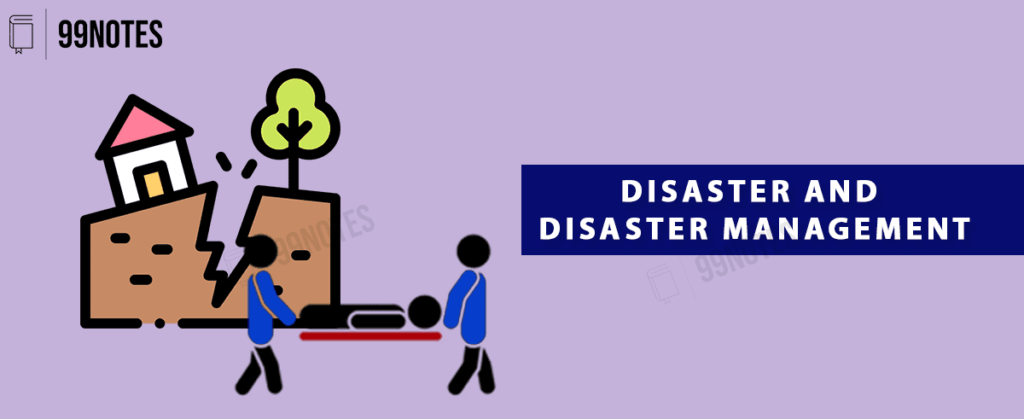
Disaster Management Free UPSC Notes Download
Disaster Management
Disasters are events that cause widespread damage, loss, or suffering, and disaster management refers to the processes and systems in place to prepare for, respond to, and recover from disasters.
Disaster management involves a range of activities, including risk assessment, preparedness planning, response and recovery operations, and reconstruction.
There are several types of disasters that can occur, including natural disasters, such as earthquakes, hurricanes, and floods, and man-made disasters, such as oil spills, terrorist attacks, and technological failures.
- Risk assessment is an important part of disaster management, and it involves identifying the hazards that could potentially cause a disaster, analyzing the likelihood and consequences of these hazards, and evaluating the effectiveness of measures in place to reduce the risk. This information can be used to develop preparedness plans and to identify the resources and capabilities that will be needed in the event of a disaster.
- Preparedness planning involves creating a plan of action to follow in the event of a disaster, as well as organizing resources and establishing protocols for communication and coordination. This can include measures such as training emergency responders, developing evacuation plans, and stocking emergency supplies.
- Response and recovery operations are the actions taken to address the immediate impacts of a disaster and to restore essential services. This can include search and rescue efforts, providing emergency shelter and supplies, and restoring power and communications.
- Reconstruction involves rebuilding and repairing the damage caused by a disaster, as well as implementing measures to reduce the risk of future disasters. This can include rebuilding infrastructure, such as roads and buildings, and implementing land use and building codes to make communities more resilient to future disasters.
- Disaster management is typically the responsibility of governments, but it can also involve the participation of non-governmental organizations, international organizations, and the private sector. Effective disaster management requires coordination and cooperation among these different stakeholders.
There are several principles of disaster management that guide the response to disasters, including:
- The precautionary principle: This principle states that action should be taken to prevent or mitigate the potential negative consequences of a disaster, even in the absence of complete scientific certainty.
- The principle of prevention: This principle emphasizes the importance of preventing disasters from occurring, rather than simply responding to their effects.
- The principle of preparedness: This principle emphasizes the importance of being prepared for disasters and having the necessary resources and capabilities in place to respond effectively.
- The principle of participation: This principle recognizes the importance of involving all stakeholders, including affected communities, in the planning and implementation of disaster management activities.
- The principle of coordination: This principle emphasizes the importance of coordinating the efforts of different stakeholders in the response to a disaster.
- The principle of transparency: This principle requires that disaster management activities be conducted in an open and transparent manner, with information being shared openly with all stakeholders.
- The principle of accountability: This principle requires that those involved in disaster management be held accountable for their actions and that they be transparent in their decision-making processes.
Disaster management is a complex and multifaceted field, and it requires a comprehensive and integrated approach to be effective. It is important to consider not only the immediate impacts of a disaster, but also the long-term consequences and the potential for future disasters.
Other Topics Related to Environment:

